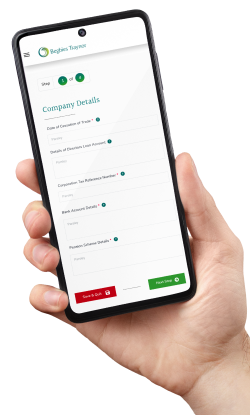When a company goes into insolvent liquidation, the liquidator must investigate director actions to establish whether any wrongdoing has occurred during the time leading up to insolvency.
These investigations protect the public from deliberate fraudulent activity by those in charge of running companies, and also ongoing or systemic negligence by directors. So what do the investigations entail, and are they the same for compulsory and voluntary insolvent liquidations?
If you enter compulsory liquidation, the Official Receiver undertakes stringent investigations into your conduct and that of other directors. This is because, by waiting for a creditor to wind up the company you haven’t prioritised creditor interests.
Your creditors might have suffered additional losses that could have been prevented if you had placed your company into voluntary liquidation, for instance, and this is taken into account by the liquidator.
So waiting for a creditor to wind up your company is generally a bad idea when you could take the initiative by entering Creditors’ Voluntary Liquidation (CVL).
Concerned about the National Insurance increase?
For the 2024-25 tax year, the rate of employer National Insurance increases from 13.8% to 15% adding yet more pressure onto already squeezed cash flows. If you are worried about the impact this could have on your company’s finances, talk to the experts at UK Liquidators. As licensed insolvency practitioners we can explain your options and help you plot a way forward. Call today on 0800 063 9262.
Creditors’ Voluntary Liquidation can be initiated by company directors, and although clearly not the best outcome for any company, the process does offer some protection for both creditors and directors.
If you’re unsure whether or not your business is insolvent, minimising creditor losses is of paramount importance. Entering a CVL prevents further financial loss and also enables you to control proceedings to some extent, which cannot be said where compulsory liquidation is concerned.
The liquidator’s investigation still takes place following a CVL, but as you’ve already demonstrated commitment to helping your creditors, it’s less likely to lead to heavy sanctions.
So how does an investigation commence, and what is the liquidator looking for?
Liquidation Portal
For Company Directors

The liquidator is likely to interview you and other directors. They’ll gather evidence from the company’s books and financial records, and may also speak to employees and external professionals such as your accountant.
These are just some of the issues the liquidator will look for during the course of their investigations:
A transaction at undervalue is made when an asset is sold for less than its true value. The liquidator will look for these types of transaction leading up to your company’s insolvency and liquidation, and also for instances where ownership of assets has been transferred to family members or friends.
Preference payments occur when one creditor is repaid in preference to others. Maybe you repaid a loan that had a personal guarantee attached, for example, or you decided to repay a loan from a family member in preference to other lenders.
Directors must be aware of their company’s financial position at all times, so if you continued trading after it became insolvent you may be accused of wrongful trading. If a director decides to wait for a creditor to wind up the company, for example, and creditors suffer greater financial loss as a result, they could be held personally liable for the additional debts.
Fraudulent trading deliberately worsens the position of creditors – it differs from wrongful trading, as there is a definite intent to defraud. A good example is taking deposits from customers when you know you can’t deliver the associated goods.
Depending on the circumstances you could face disqualification for 2-15 years. There’s also the possibility of being held personally liable for a proportion of the company’s debts, or in some cases all of its debts.
If wrongdoing is found, the ‘veil of incorporation’ that typically separates directors from their company in law, is removed and you could face severe penalties. The most serious cases where fraud is uncovered become a criminal matter, and a prison sentence could be handed down.
If you’re worried about a liquidator’s investigations, if you can show the transactions and the way you ran the business during the time leading up to insolvency were in line with your duties as a director, the liquidator will have little reason to pursue you further.
Start your online liquidation today
If you have decided liquidation is the right option for your limited company, you can take the first step and begin the process online using our online portal. Starting the process is quick, simple, and can be done at a time that suits you. Your information will be submitted to your local UK Liquidators insolvency practitioner who will be with you every step of the way. Click here to start your company’s liquidation online.
One of the best ways to protect yourself from the repercussions of a liquidator’s investigation is to seek professional help as soon as possible. You must obtain advice from a licensed IP if your company becomes insolvent, but it makes sense to seek this type of specialist help well before insolvency becomes an issue.
For more information on liquidator’s investigations, please get in touch with our team of licensed IPs at UK Liquidators. We’re insolvency specialists and can provide reliable, immediate, and independent advice. We operate from a network of offices throughout the country, and offer free same-day consultations.
By completing the test, you will receive:
If you are considering liquidation for your company, taking expert advice at an early stage is crucial. At UK Liquidators, our team of licensed insolvency practitioners are committed to providing limited company directors with the help and advice they need to make an informed decision.




Looking for immediate support?
Complete the below to get in touch